Clopilet A | Tablet | 10 pcs
৳ 120.00
Brand Name: Clopilet A Tablet
Generic: Clopidogrel Bisulphate
75 mg
Manufacturer: Sun Pharmaceutical Ltd.
Unit Price: ৳ 12.00 (5 x 10: ৳ 600.00)
Strip Price: ৳ 120.00
Indications
Acute Coronary Syndrome (ACS): It is indicated to reduce the rate of myocardial infarction (MI) and stroke in patients with non-ST-segment elevation ACS [unstable angina (UA)/non-ST-elevation myocardial infarction (NSTEMI)]. It is indicated to reduce the rate of myocardial infarction and stroke in patients with acute ST-elevation myocardial infarction (STEMI).
Recent MI, recent Stroke, or established Peripheral Arterial Disease: In patients with established peripheral arterial disease or with a history of recent myocardial infarction (MI) or recent stroke it is indicated to reduce the rate of MI and stroke.
Pharmacology
Dosage & Administration
Acute Coronary Syndrome: In patients who need an antiplatelet effect within hours, initiate clopidogrel with a single 300 mg (4 tablets) oral loading dose and then continue at 75 mg once daily. Initiating it without a loading dose will delay establishment of an antiplatelet effect by several days.
Recent MI, Recent Stroke, or Established Peripheral Arterial Disease: 75 mg once daily orally without a loading dose.
It is given orally with or without food.
Interaction
- NSAIDs, warfarin, selective serotonin and serotonin norepinephrine reuptake inhibitors (SSRIs, SNRIs): Increases risk of bleeding
- CYP2C19 inhibitors (omeprazole or esomeprazole): Avoid concomitant use of omeprazole or esomeprazole
- Repaglinide (CYP2C8 substrates): Avoid concomitant use of Clopidogrel with Repaglinide as it increases plasma concentrations of Repaglinide
Contraindications
Side Effects
Clopidogrel is generally well tolerated drug.
- Common side effects: Bleeding, Diarrhoea, gastrointestinal discomfort, haemorrhage, Skin reactions.
- Rare side effects: Acquired haemophilia, anaemia, angioedema, arthralgia, arthritis, bone marrow disorders.
Pregnancy & Lactation
Precautions & Warnings
- As it is a prodrug, so metabolism to its active metabolite is impaired by genetic variations in CYP2C19 (poor metabolizer) and by the drugs that inhibit CYP2C19 such as Omeprazole and Esomeprazole. Concomitant use with these drugs and in CYP2C19 poor metaboliser may reduce the antiplatelet activity of Clopidogrel.
- As it inhibits platelet aggregation for the lifetime of the platelet (7-10 days), risk of bleeding may increase. To restore hemostasis, platelet transfusions within 4 hours of the loading dose or 2 hours of the maintenance dose may be less effective.
- Discontinuation of Clopidogrel increases the risk of cardiovascular events. Discontinue 5 days prior to elective surgery that has a major risk of bleeding. Resume Clopidogrel as soon as hemostasis is achieved.
- Thrombotic Thrombocytopenic Purpura (TTP) has been reported that requires urgent treatment including plasmapheresis (plasma exchange).
- Hypersensitivity including rash, angioedema or hematologic reaction has been reported in patients receiving clopidogrel or history of hypersensitivity to other thienopyridines.
Use in Special Populations
Overdose Effects
Therapeutic Class
Storage Conditions
| Generic Name | Clopidogrel Bisulphate |
|---|---|
| Tablet | 75 mg |
Only logged in customers who have purchased this product may leave a review.


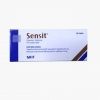
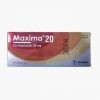

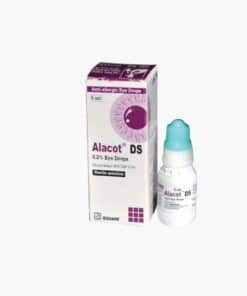
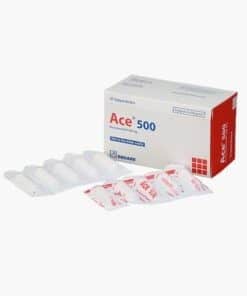
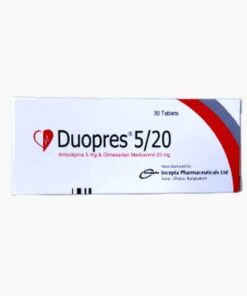
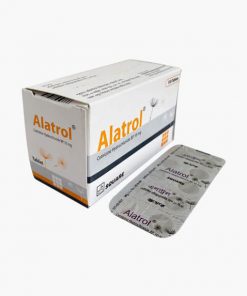
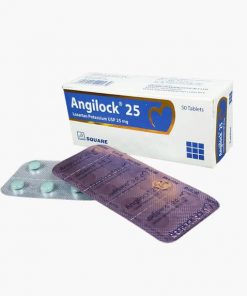
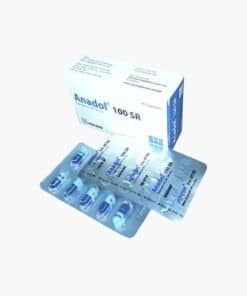
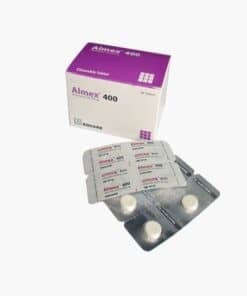
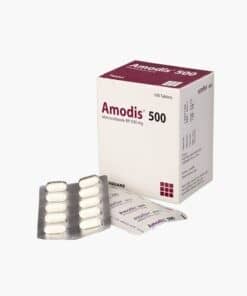
Reviews
There are no reviews yet.